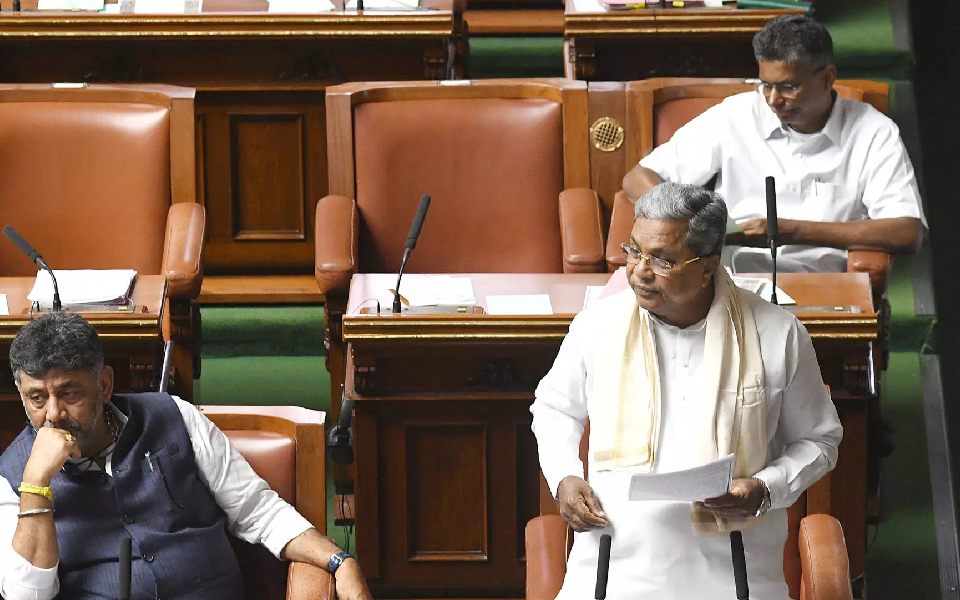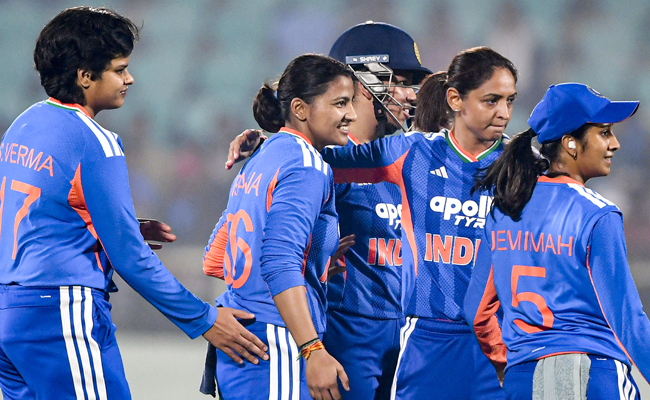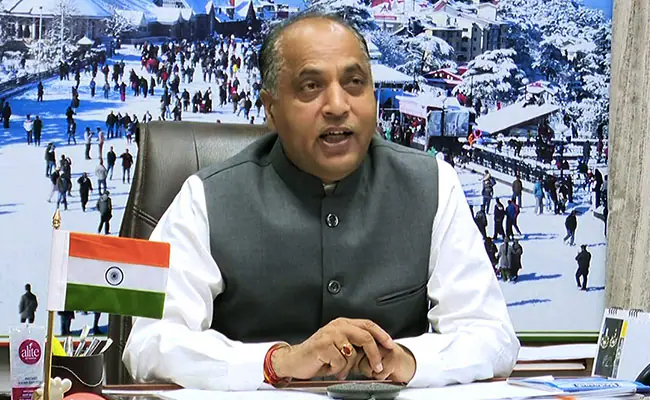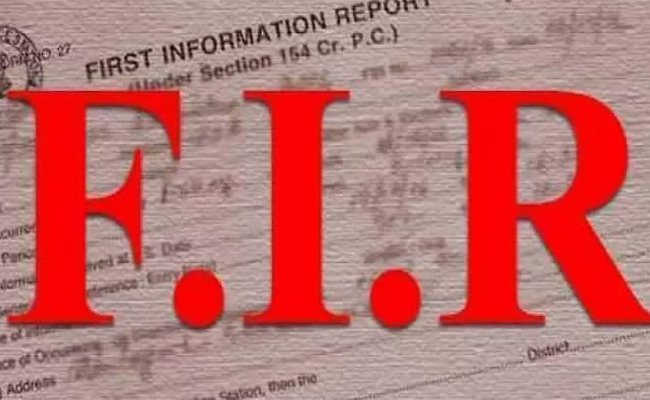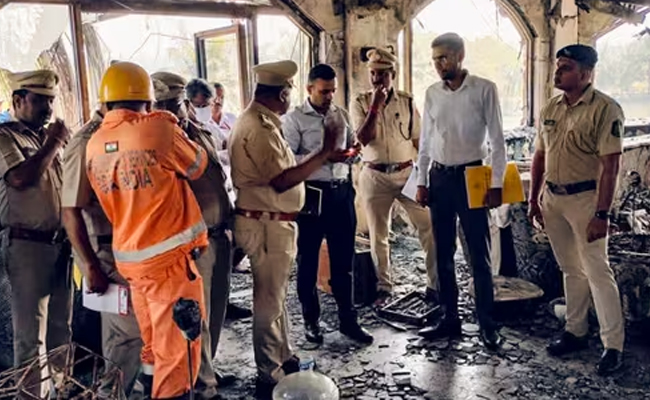Bengaluru/Hubballi, Nov 10: Karnataka Chief Minister Siddaramaiah on Sunday said the investigation into the COVID-19 pandemic related irregularities will start after the cabinet approval.
He said the sub-committee was examining the report given by the Justice Michael D' Cunha Commission of Inquiry which investigated alleged irregularities in the purchase of equipment and medicines during the Covid 19 pandemic when the BJP was in power.
"It has not come before the cabinet. The sub-committee is examining the report. Once the sub-committee submits its report, we will discuss that in the cabinet," Siddaramaiah told reporters in Hubballi.
Karnataka Health Minister Dinesh Gundu Rao had said on Saturday that the Commission has recommended for the prosecution of Yediyurappa and former minister B Sriramulu in connection with the alleged irregularities in purchase of equipment and medicines during the pandemic.
ALSO READ: Not mere corruption, its mass murder: Priyank Kharge presents data on scam by BJP during COVID-19
The Karnataka government on October 11 decided to constitute a Special Investigation Team (SIT) and a Cabinet sub-committee to take further action on the D' Cunha commission report. In the "partial" report submitted on August 31 in 11 volumes, the Commission examined the expenditure to the tune of Rs 7,223.64 crore.
Yediyurappa had said there was no question of getting scared by "these threats".
The government was trying to create confusion by digging into the past and this will not serve any purpose, he added.
Reacting to Yediyurappa's comments, Siddaramaiah said, "These are not empty threats. We have formed a Commission headed by Justice Michal D'Cunha. Based on his report criminal action will be taken."
"Let's see what he (Yediyurappa) will do after the criminal action is initiated," Siddaramaiah added.
"Judiciary is meant for delivering justice. Isn't it for punishing those who have committed wrong," he sked.
Home Minister G Parameshwara too hinted at prosecuting former Yediyurappa and others based on the report. He too said the state cabinet will decide the next course of action.
"It has been said (in the report) that in this (PPE kit) purchase alone there was a loss of almost Rs 15 - Rs 16 crore. Naturally, the government will take the next steps. The cabinet will decide on it," Parameshwara told reporters.
Meanwhile, Karnataka Information Technology Minister Priyank Kharge alleged that the PPE kits that were locally available at Rs 333.40 apiece during the COVID-19 pandemic were purchased from a Chinese firm and a Hong Kong firm at Rs 2,100 per kit.
Addressing reporters, Kharge said that on March 17, 2020 the then BJP government in Karnataka approved the purchase of drugs, chemicals, medical equipment, and consumables for Rs 416.48 crore.
The Need Assessment Committee of the health department had decided to purchase 12 lakh PPE kits. This was at a time when 18 lakh kits were available in the state, he explained.
To purchase 12 lakh PPE kits, a rate of Rs 2,117.53 was fixed based on an email from the Commerce and Industry Department, the Minister said. He cited the email to state that there were names of two companies: a Chinese one and a Hong Kong firm.
The government did not negotiate with the vendor, did not invite tender nor did verify the prevailing market rate but whatever rate the vendor had proposed was agreed upon, the Minister alleged.
He added that the officials told Yediyurappa and the then Health Minister that three quotations had come and asked them to call for a short-term tender.
"But the Chief Minister and Health Minister termed that to be an emergency situation and asked the officials to prepare the files and they would look into them," Kharge alleged.
On April 2, 2020, the file was submitted to the government. The CM gave a direct order to purchase one lakh PPE kits and this cost the government approximately Rs 21.18 crore, he said. In all, the PPE kits were purchased for a total cost of Rs 62.57 crore.
Let the Truth be known. If you read VB and like VB, please be a VB Supporter and Help us deliver the Truth to one and all.
Visakhapatnam (PTI): Shafali Verma hit a blistering unbeaten 69 as India made short work of a paltry target to outclass Sri Lanka by seven wickets in the second Women’s T20 International here on Tuesday.
India now lead the five-match series 2-0 after another one-sided victory, having restricted Sri Lanka to a modest 128 for 9 through a collective display of disciplined bowling from the spin trio of seasoned Sneh Rana, ably complemented by young spinners Vaishnavi Sharma and Shree Charani.
During the chase, vice-captain Smriti Mandhana (14) fell cheaply but Shafali, enjoying new found confidence after a stellar show in the World Cup final, sent the bowlers on a leather-hunt during her 34-ball knock, winning it for her team in just 11.5 overs.
The hosts have now completed back-to-back successful chases within 15 overs which speaks volumes about the unit's sky-high confidence.
Shafali's innings had 11 punchy boundaries apart from a maximum.
The floodgates opened when left-arm spinner Inoka Ranaweera bowled a few flighted deliveries and Shafali would step out everytime to hit her over extra cover. Her footwork against slow bowlers was immaculate whether stepping out to loft the ball or rocking back to punch or pull.
Seeing her confidence, the newly appointed Delhi Capitals skipper Jemimah Rodrigues (26 off 15 balls) also attacked as the duo added 58 runs in just 4.3 overs.
By the time Rodrigues was out trying to hit one six too many, the match as a contest was over. Shafali completed her half-century off just 27 balls and completed the formalities in a jiffy.
Earlier, off-spinner Rana, who got a look-in after Deepti Sharma was ruled out due to fever, showed her utility keeping the Lankan batters under tight leash with figures of 1 for 11 in 4 overs, including a maiden which certainly is a rarity in T20 cricket.
Charani, who made an impression during India's ODI World Cup triumph, took 2 for 23 in her quota of overs, while Vaishnavi after an impressive debut in the opening encounter, finished with 2 for 32, not letting the Islanders get easy runs in her second spell.
The last six wickets fell for just 24 runs, but what stood out during India’s bowling effort was their superb ground fielding. After a patchy show in the previous game, the improved sharpness in the field resulted in three run-outs.
Sri Lankan skipper Chamari Athapaththu (31 off 24 balls) looked in good nick as she deposited length deliveries from seamers Kranti Gaud and Arundhati Reddy over the ropes but it was Rana, who kept her quiet by repeatedly pitching on good length.
Unable to manoeuvre the strike and with the big hits suddenly drying up, Athapaththu chanced her arm at another delivery in which Rana had shortened the length slightly.
Not having transferred the weight into the lofted shot, Athapaththu's hoick was pouched cleanly by Amanjot Kaur at long-off.
This was after Athapaththu's opening partner Vishmi Gunaratne (1) had offered a simple return catch to Gaud.
Hasini Perera (22 off 28 balls) and Harshitha Samarawickrama (33 off 32 balls) did stitch a stand of 44 but they could never set the tempo against the Indian spin troika.
Once Hasini offered a tame return catch off a Charani full-toss, Sri Lankans never recovered and lost wickets in a heap towards the end.

